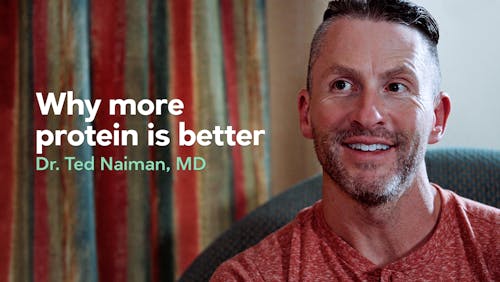Pharmacists learn to dispense a different Rx: low-carbohydrate diets

If you have type 2 diabetes, now it’s not just doctors and dietitians who can help you regain your health. Pharmacists in the U.K. are being trained to help patients learn about low-carbohydrate diets. These diets can help people with type 2 diabetes improve their blood sugar levels, reduce the amount of medicine they have to take, and even help them eliminate medications completely.
An article published by the U.K.’s Royal Pharmaceutical Society in the Pharmaceutical Journal features physicians and pharmacists who have led the way in expanding the options given to people diagnosed with type 2 diabetes. These healthcare providers don’t just guide patients in how to use a low-carbohydrate diet to improve their health. With this approach, they also help the National Health Service save money on medications that are no longer needed.
When a person with type 2 diabetes begins a low-carbohydrate diet, healthcare providers need to closely monitor and adjust medications. This can be a labor-intensive task. In order to provide individuals with the necessary support, pharmacists are being enlisted to help people make these important lifestyle improvements safely.
In the U.S., this typically means that pharmacists support the decision made between a doctor and patient to begin a low-carbohydrate diet. They work as part of the clinical care team to ensure patient safety as medications are reduced or eliminated by doctors. However, in some places, such as the U.K and Canada, pharmacists can take additional training that allows them to prescribe and deprescribe medications themselves. A recent review notes that patients with chronic diseases have the same or better outcomes when their medications are prescribed by trained pharmacists or nurses compared to doctors.
Pharmacists are often the healthcare practitioners who are in closest contact with patients. They are intimately familiar with the entire prescription history of a patient and are taught to understand how foods and medications interact. Although many pharmacists are not specifically trained in how to de-prescribe medications for people with type 2 diabetes who begin a low-carbohydrate diet, this is changing.
A community pharmacist in Northern Ireland, Eoghan O’Brian, taught individuals who got their diabetes medications from his pharmacy how to lower their blood sugars using a low-carbohydrate diet. O’Brian was able to help some of these individuals reduce their blood sugar levels and, in two cases, was able to help individuals eliminate or avoid medications completely.
Now efforts are underway elsewhere in the U.K. to train pharmacists to offer a low-carb lifestyle intervention to people with type 2 diabetes. Until this program gets funded, however, some pharmacists are providing private services to people with type 2 diabetes to help them reduce carbohydrates in their diet and reduce the amount of medications they use.
Although not all experts agree, past concerns about the safety of low-carbohydrate diets have largely been settled. The fact that patients are typically not asked to restrict saturated fat on a low-carb diet diet has been a concern, but a recent article in the BMJ by Forouhi et al. (2019) indicates that this guidance has been based on evidence that is considered controversial and potentially inadequate.
One of the benefits of a low-carb diet, as Pharmaceutical Journal article notes, is that people don’t have to go hungry. As the Diet Doctor site demonstrates, there are many delicious low-carbohydrate foods to choose from, and patients are typically encouraged to eat enough to feel satisfied until the next meal.
Here at Diet Doctor, we are pleased to see pharmacists becoming more involved in helping people with type 2 diabetes learn about low-carbohydrate diets. Having the support of community pharmacists will increase the safety of those who wish to reduce their medications by using a low-carbohydrate diet. Although they may be giving out fewer medications, these pharmacists may be getting back the satisfaction of seeing their patients regain their health and improve their quality of life.
Earlier
Ketogenic nutrition training program launched
Check out our new map of doctors recommending low carb
Low-carb doctors proud to be counted: Six reasons why it matters to world health
Treating patients with low carb – workshop for doctors


Low carb & keto
for doctors
Guide Are you a doctor or do you know a doctor? Are you interested in low carb and keto diets? Then this resource could be something for you to use or share!











